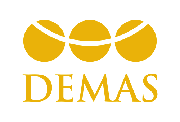500 Words on the European Democracy and Support to the Civil Society
“While the whole world has been trying to tackle the COVID-19 pandemic and looking for ways how to fine-tune the response to the virus and its consequences, one element is missing in the picture and it is the support to democracy and restoration of civil rights and fundamental freedoms. It is particularly surprising in the EU, a global actor in providing support to democracy, where the tendency has been to focus on health protection, economy, ecological and digital transitions or industrial sector, but to play down the fundamental values in the recovery plans.” Read a commentary by Pavel Havlíček for EU-Russia Civil Society Forum.
Europe: The Logic and Power of Chinese Influence
A new comparative study has revealed that China has been using a targeted mix of ‘carrots’ and ‘sticks’ to increase its influence in Central European countries. Findings reveal that China does not use a ‘one size fits all’ approach towards the Czech Republic, Poland, Hungary and Slovakia, instead relying on varying local political climates, existing geopolitical standing and level of bilateral interactions to shape its strategy and tactics in the region. The study was undertaken by the MapInfluenCE project and involved collaborative research across these four Central European nations.
Understanding China’s ‘carrots’ and ‘sticks’ strategy in Central Europe is especially important following the announcement that the President of the Czech Senate, Miloš Vystrčil, plans to visit Taiwan in August 2020. The question of whether China will retaliate against the Czech Republic and how is now a burning question in Prague.
Limited welcome: protecting the media from hostile foreign influence
The coronavirus pandemic has demonstrated that the media in democratic countries is indeed a strategic industry, as it serves as the principle means of communication between governments and citizens. Yet it is also during a crisis that hostile foreign powers can use the same channels of communication to influence narratives, spread disinformation and contribute to panic or social unrest. Hostile foreign influence to change the public discourse can be effective, as it has so far gone largely unnoticed by both European governments as well as society at large. The problem has not yet been acknowledged, quantified and properly responded to. Legislation treating the media as a strategic industry is either missing or exists in a rudimentary form.
You can find more comments and analyses on the AMO webpage.

